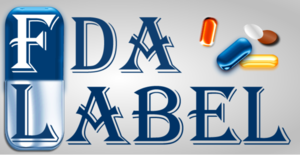Consumer and patient advocacy groups clashed with economists and generics makers at the US Food and Drug Administration’s (FDA) public hearing over the agency’s proposed rule to allow generics makers to change their labels independently.
In November 2013, FDA proposed a new rule that would allow generics makers to change their labelling in the same way as brand-name manufacturers already do [1]. The new rule, according to FDA, would ‘speed the dissemination of new safety information about generic drugs to health professionals and patients’. The comment period on FDA’s proposal closed in March 2014. However, FDA requested additional feedback and held a public hearing after receiving more than 100 comments and an alternative proposal to the rule [2].
Consumer group Public Citizen, the National Women’s Health Network, the American Association for Justice and other advocacy groups gave a briefing on Capitol Hill prior to the hearing, which was held on 27 March 2015, to explain their reasons for backing the proposed rule.
Generics need the flexibility to change their labels and the accountability to ensure patients receive adverse event warnings as quickly as possible, said Dr Michael Carome, Director of Public Citizen’s Health Research Group. He added that when a new drug is brought to market, it is not uncommon for new risk information to emerge over the course of several years, even several decades. He cited a report that found 53 examples of drugs available as generics for which a ‘black box’ warning was added between 2008 and 2012.
However, generics companies have strongly opposed the rule, saying that it could increase the risk to patients and cause confusion among prescribers and providers due to different labels being used by different manufacturers. They also believe that it could open them up to billions of dollars in annual legal liabilities and increased pharmacovigilance monitoring costs. In fact, an analysis by economic consulting firm Matrix Global Advisors (MGA) has shown that this change would add US$4 billion to the annual healthcare costs in the US [3].
An alternative approach, being supported by both the Generic Pharmaceutical Association (GPhA), the Pharmaceutical Research and Manufacturers of America (PhRMA) and other healthcare stakeholders, is for FDA to coordinate label changes via the Expedited Agency Review (EAR).
The EAR would establish defined time parameters for FDA to take action on a label change made either following FDA’s receipt and review of ‘new safety information’ from a multi-source application holder or following review of data received through the Sentinel System and/or other databases including global sources that are suggestive of a need for a label change.
Moreover, the EAR calls for the adoption of e-labelling technology to make new information available much more quickly. The generics makers point out that FDA’s current proposal relies on updates to paper labels that can take months or even years to be incorporated.
The EAR, on the other hand, reinforces the basic goals set forth in the FDA proposal by:
- assuring that all application holders meet their responsibility of reporting safety related information; and
- making newly evaluated safety information available to practitioners and the public as soon as possible.
The plan could also in theory expand the generic failure-to-warn liability protection to brand-name drugmakers as well.
Public Citizen’s Dr Carome, however, argued that making FDA the central arbiter of all labelling changes would be a responsibility, FDA simply does not have the resources to accomplish speedily.
Related article
Healthcare providers concerned about FDA’s generics labelling rules
References
1. GaBI Online - Generics and Biosimilars Initiative. FDA to allow generics makers to change labelling [www.gabionline.net]. Mol, Belgium: Pro Pharma Communications International; [cited 2015 May 15]. Available from: www.gabionline.net/Policies-Legislation/FDA-to-allow-generics-makers-to-change-labelling
2. GaBI Online - Generics and Biosimilars Initiative. FDA re-opens comment period on generics labelling rule [www.gabionline.net]. Mol, Belgium: Pro Pharma Communications International; [cited 2015 May 15]. Available from: www.gabionline.net/Policies-Legislation/FDA-re-opens-comment-period-on-generics-labelling-rule
3. GaBI Online - Generics and Biosimilars Initiative. FDA’s labelling proposal will increase cost of generics [www.gabionline.net]. Mol, Belgium: Pro Pharma Communications International; [cited 2015 May 15]. Available from: www.gabionline.net/Reports/FDA-s-labelling-proposal-will-increase-cost-of-generics
Permission granted to reproduce for personal and non-commercial use only. All other reproduction, copy or reprinting of all or part of any ‘Content’ found on this website is strictly prohibited without the prior consent of the publisher. Contact the publisher to obtain permission before redistributing.
Copyright – Unless otherwise stated all contents of this website are © 2015 Pro Pharma Communications International. All Rights Reserved.
Source: FDA, GPhA, MedPageToday, National Womens Health Network








 0
0











Post your comment